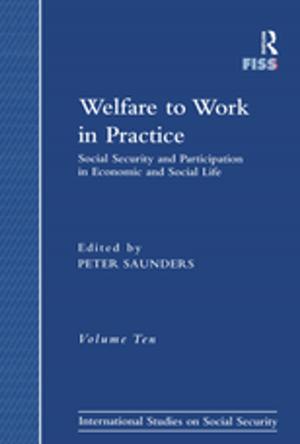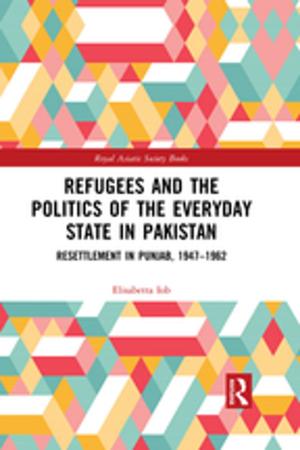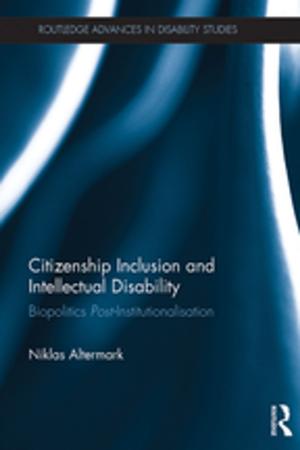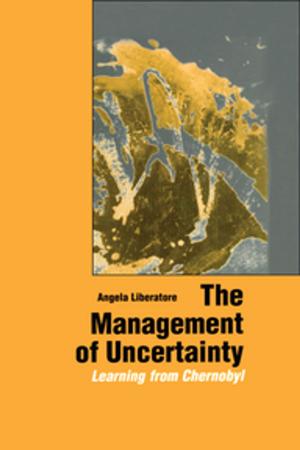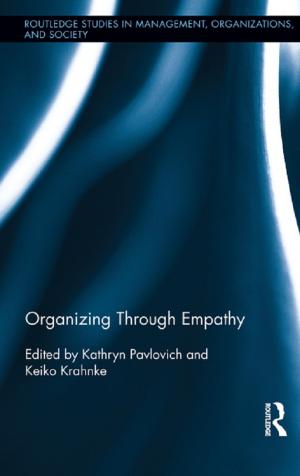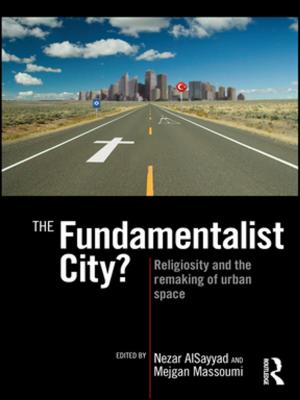Rise of Reason
Intellectual history of 19th-century Maharashtra
Nonfiction, History, Asian, India, Social & Cultural Studies, Social Science, Sociology, Political Science| Author: | Hulas Singh | ISBN: | 9781317398738 |
| Publisher: | Taylor and Francis | Publication: | September 25, 2015 |
| Imprint: | Routledge India | Language: | English |
| Author: | Hulas Singh |
| ISBN: | 9781317398738 |
| Publisher: | Taylor and Francis |
| Publication: | September 25, 2015 |
| Imprint: | Routledge India |
| Language: | English |
This book offers one of the first critical evaluations and in-depth analysis of the intellectual movement in Maharashtra in the 19th century. Arguing against the prevalent view that Indian rationality was imported from Europe through the colonial agency, it traces the rational roots of the movement to indigenous intellectual traditions and history. It also questions the centrality assigned to the ‘Bengal Renaissance’ as being the representative of the contemporary intellectual movement in the country.
Strongly grounded in primary research, this volume brings forth many new facts and facets into the scholarly discourse on topics such as the idea of ‘Drain’ and the rise of Indian nationalism, so far seen as a predominantly political process divorced from its cultural dimensions. It re-examines the view that cultural consciousness that preceded political agitation was a separate sphere of activity and suggests that both were integral stages of anti-colonialism in the country. The author maintains that rationalism and nationalism were closely connected as a means-and-end continuum. He also provides a new and substantially different understanding of the 19th-century intellectuals Mahatma Jotirao Phule and Pandita Ramabai among others.
Lucid, accessible and thought provoking, this book will interest scholars and researchers of modern Indian history, Indian political thought, sociology, philosophy and Marathi literature.
This book offers one of the first critical evaluations and in-depth analysis of the intellectual movement in Maharashtra in the 19th century. Arguing against the prevalent view that Indian rationality was imported from Europe through the colonial agency, it traces the rational roots of the movement to indigenous intellectual traditions and history. It also questions the centrality assigned to the ‘Bengal Renaissance’ as being the representative of the contemporary intellectual movement in the country.
Strongly grounded in primary research, this volume brings forth many new facts and facets into the scholarly discourse on topics such as the idea of ‘Drain’ and the rise of Indian nationalism, so far seen as a predominantly political process divorced from its cultural dimensions. It re-examines the view that cultural consciousness that preceded political agitation was a separate sphere of activity and suggests that both were integral stages of anti-colonialism in the country. The author maintains that rationalism and nationalism were closely connected as a means-and-end continuum. He also provides a new and substantially different understanding of the 19th-century intellectuals Mahatma Jotirao Phule and Pandita Ramabai among others.
Lucid, accessible and thought provoking, this book will interest scholars and researchers of modern Indian history, Indian political thought, sociology, philosophy and Marathi literature.





